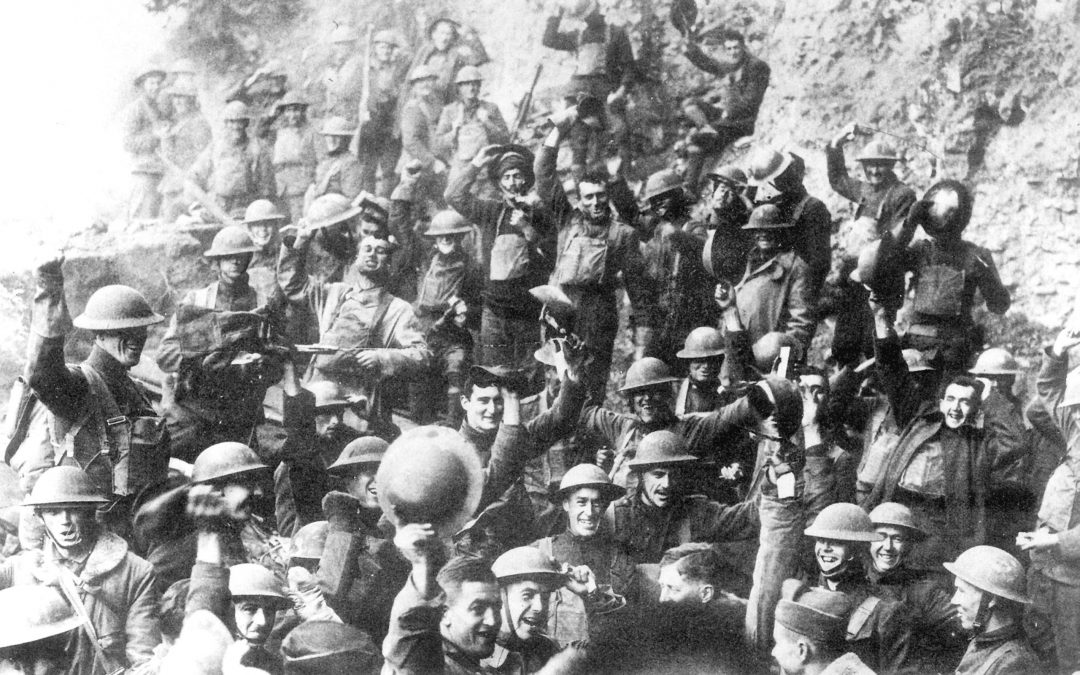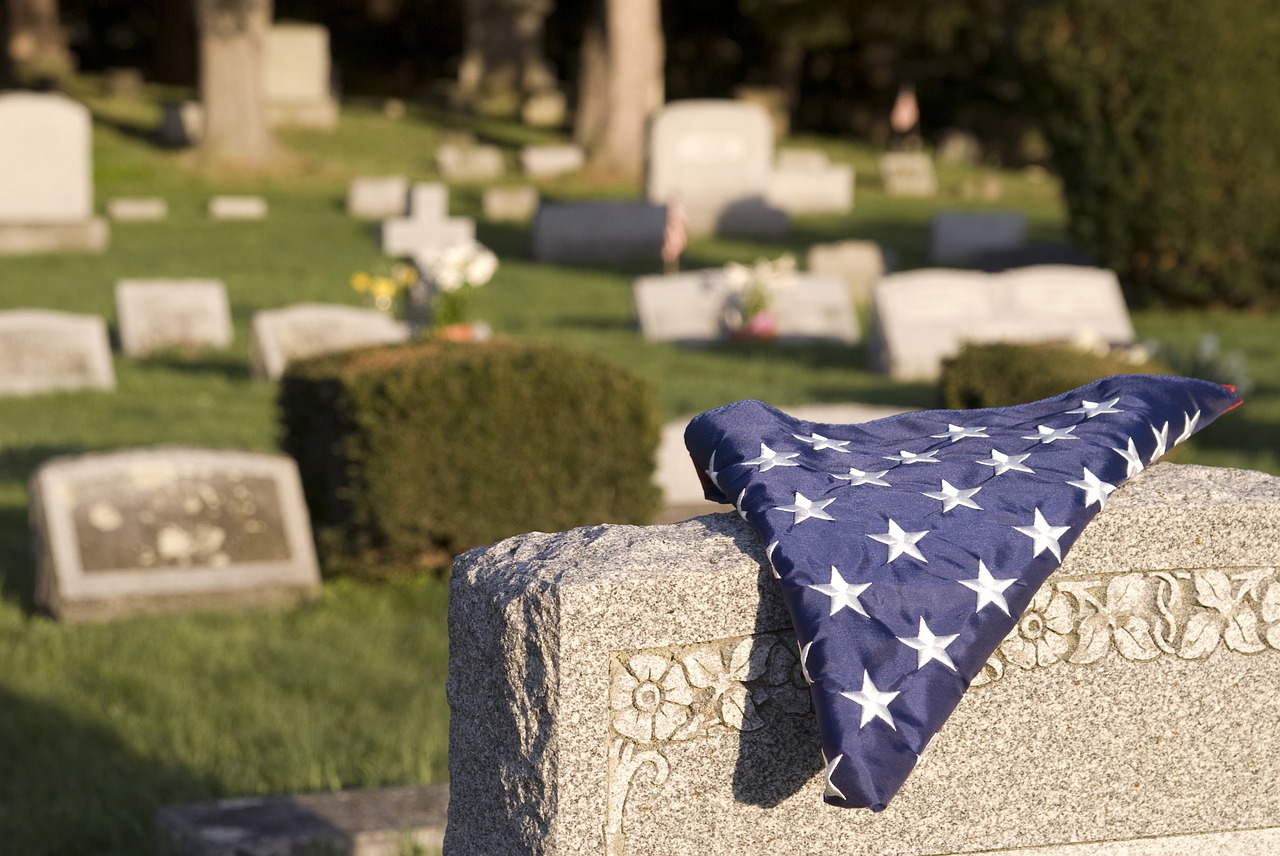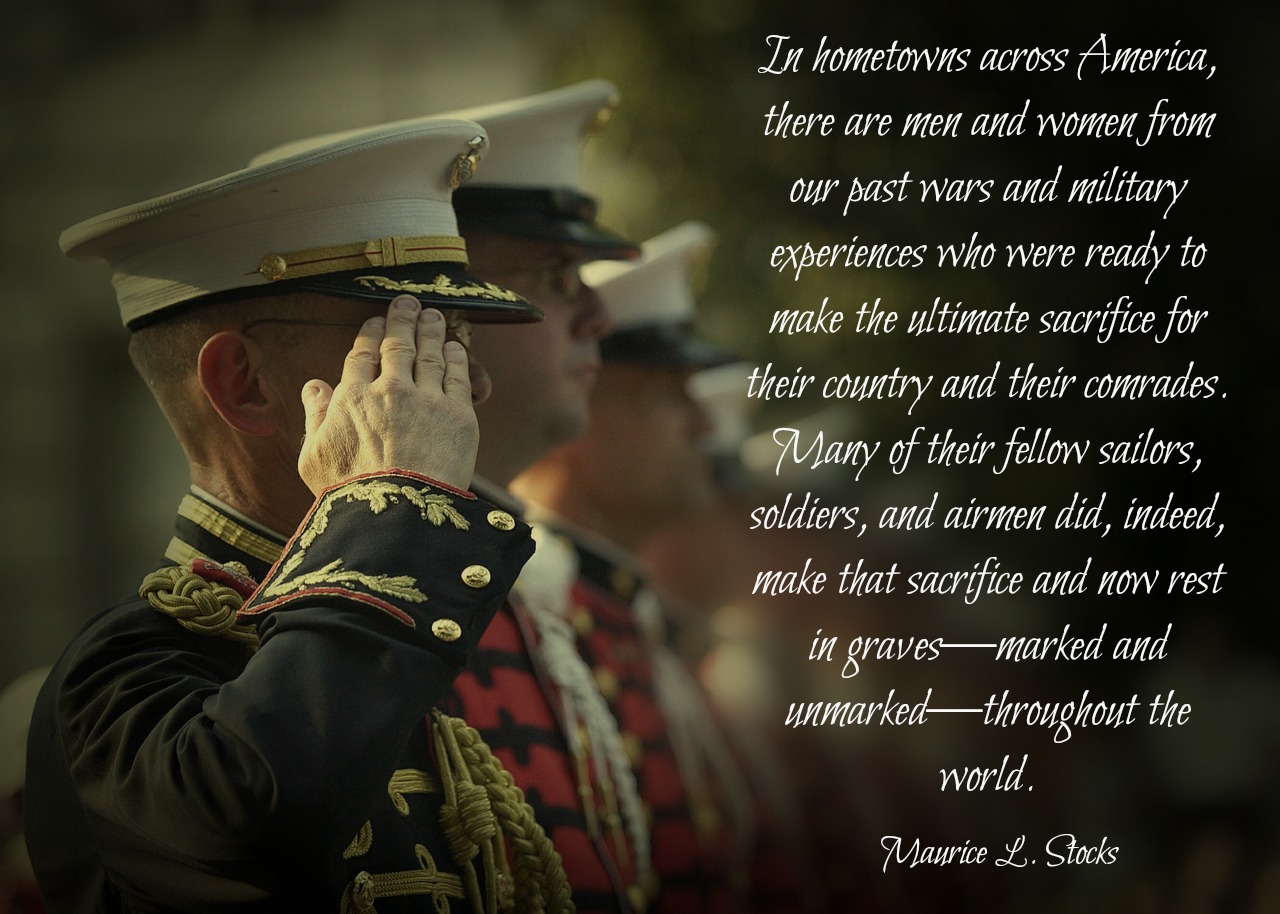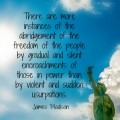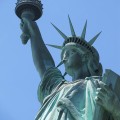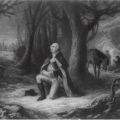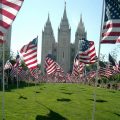Nearly 100 years ago, hundreds of thousands of servicemen from multiple countries were waiting for “the eleventh hour, of the eleventh day, of the eleventh month” that would mark the beginning of an armistice in World War I. Some were still fighting until the last minute, some were waiting, but all would be affected by this moment.
We have not forgotten this momentous day, and today we celebrate it as Veterans Day. The U.S. Veterans Administration said,
The … observance of Veterans Day [on] November 11 not only preserves the historical significance of the date, but helps focus attention on the important purpose of Veterans Day: A celebration to honor America’s veterans for their patriotism, love of country, and willingness to serve and sacrifice for the common good.
Our veterans fought ugly battles so that we could continue to have the freedoms that we enjoy. Honoring our veterans helps us to remember the price we pay for those freedoms—and why patriotism, love of country and willingness to serve and sacrifice for the common good are still essential today.
The Blessings of Freedom
It’s easy to take our freedoms for granted—especially freedom of speech. Many Americans take to social media to call out, demean or harass those whose views differ from their own. Or just to state their opinion on something. At times, the climate can get downright mean and nasty. We forget that the ability to speak one’s mind, however offensive to our own sense of right or wrong, is a God-given right that not all nations enjoy. But a recent news story is a stark reminder of that fact. An American working in Zimbabwe was arrested and charged with tweeting “mean things” about that nation’s president. If convicted, she faces up to 20 years in prison for her tweets. Chilling, isn’t it?
So what is the price that we pay for freedom of speech? We sometimes have to listen to and tolerate things with which we don’t agree. If we want to continue to enjoy our freedom of speech, then we must protect it. Elder Dallin H. Oaks said,
I now speak of one of the challenges that face us—the meaning and application of the vital constitutional guarantees that government authority shall make no laws or regulations “abridging the freedom of speech, or of the press, or the right of the people peaceably to assemble.” Those rights are fundamental to our constitutional order—not just to protect citizens against repressive government action but also to foster the cherished open society that is the source of our freedom and prosperity. Beyond that, the free exercise of religion is vital because it insures citizens the rights of worship and action that are fundamental to their being.
Freedom of Religion
Hand in hand with freedom of speech is freedom of religion. Elder D. Todd Christofferson explained,
Religious freedom is the cornerstone of peace in a world with many competing philosophies. It gives us all space to determine for ourselves what we think and believe—to follow the truth that God speaks to our hearts. It allows diverse beliefs to coexist, protects the vulnerable, and helps us negotiate our conflicts. …
A robust freedom is not merely what political philosophers have referred to as the “negative” freedom to be left alone, however important that may be. Rather, it is a much richer “positive” freedom—the freedom to live one’s religion or belief in a legal, political, and social environment that is tolerant, respectful, and accommodating of diverse beliefs.
We use our freedom of religion and belief to establish our core convictions, without which all other human rights would be meaningless. How can we claim the freedom of speech without being able to say what we truly believe? How can we claim the freedom of assembly unless we can gather with others who share our ideals? How can we enjoy freedom of the press unless we can publicly print or post who we really are?
The question is, how do we protect these freedoms? This is where we turn to the example set by our veterans—patriotism, love of country and a willingness to serve and sacrifice for the common good.
Patriotism
What is patriotism? According to Merriam-Webster’s online dictionary, patriotism is
: love for or devotion to one’s country
This devotion to one’s country is not merely a feeling, nor is it a passive belief. True patriotism requires action on our part—in other words, citizenship. Or rather, active citizenship. Active citizenship is the defining actions of our patriotism and love of country. Lawrence C. Walters, at the time a professor in the BYU Romney Institute of Public Management, said,
There are at least two ways to think about citizenship. The first sees citizens as having certain rights that should be protected by law. Those who hold this view see “citizenship as [a] legal status” and are concerned mostly with defending individual freedoms from interference by others. There is no question that rights are an important aspect of citizenship. All too often, however, in today’s world this approach to citizenship descends into a type of consumerism: citizens see themselves as no more than customers of government.
… My concern is with the way we act when we think of ourselves as customers of government. Consumer citizenship is something we assert only occasionally. …
The second vision of citizenship is more demanding and is captured well in a definition offered by Peter Block:
A citizen is one who is willing to be accountable for and committed to the well-being of the whole. That whole can be a city block, a community, a nation, the earth. A citizen is one who produces the future, someone who does not wait, beg, or dream for the future.
The antithesis of being a citizen is the choice to be a consumer or a client.
This citizenship, fueled by patriotism, is what led (and continues to lead) thousands of young Americans to enlist in the military.
Service and Sacrifice
Service and sacrifice are true marks of heroism, and our American military members are true heroes. Maurice L. Stocks, at the time assistant dean in the BYU Marriott School of Management, said,
Years ago, air force general Stu Barstad—the air force’s chief of chaplains—recalled walking through the thousands of graves at Normandy, the last resting place of so many good and dedicated young Americans who were World War II casualties. All of them had entered that war with their own hopes and dreams and families. Now their bodies were buried in this hallowed spot. As he contemplated what would have become of the lives of these young men and women if they had survived, an aged French woman walked up to him and said, “Bravo, Americans. Bravo.” She had lived through the invasion of Europe, and she understood what these young men and women had done for her country and her generation.
Such stories bring to my mind the words on a monument dedicated to our marines at Guadalcanal. Many of the young men who fought in this World War II battle were killed. “When you go home,” the monument reads, “tell them, and say, ‘For their tomorrows, we gave our today.’”
This sense of service and sacrifice—which our citizens have displayed so often in our history—is a key, I believe, to the greatness of this wonderful country.
We may not be asked to pay the ultimate price, but we, too, can serve and sacrifice for our country. How do we do that? By standing up for what is right and being good citizens.
Citizenship
Being a good citizen means being involved in our communities and in our congregations. This means that first, we are accountable. Professor Walters explained,
We believe that not only are we accountable for our individual actions but that we are also individually accountable for the actions taken by our governments. This accountability extends both to “making laws and administering them.” Active engagement in the functioning of government and in addressing community concerns is an inherent responsibility of our citizenship and demands our best efforts.
To give our best efforts, we must be informed and do our homework on the issues. But we do not work alone. Professor Walters said,
We are each accountable for the quality of governance in our communities and nations. But we are not asked to bear this responsibility alone. Our lives are interconnected with others’. Our capacities are enhanced and our possibilities expanded through cooperation and collaboration. Because of our shared responsibility and because we are so much more effective together than we are individually, as active citizens we must actively engage with others.
We must cultivate the ability to participate in collective reasoning…. Such reasoning involves joining with others to identify issues and concerns, giving and receiving information, and taking counsel together. In this process citizens actually listen to others with a desire to understand their views. They ask questions they don’t know the answers to. They respect others, and they respect the decision process.
Inevitably, deliberative processes such as the one I have described identify conflicting points of view. When that happens, active citizens don’t give up but look for common ground and seek to build on a foundation of common understanding. We build relationships, coalitions, and networks as we patiently strive to reach joint decisions.
Standing for the Cause of Right
Sometimes as we are getting involved in the community and working with others, we have to stand up for what is right. That doesn’t give anyone license to be mean, but it requires that we listen to one another’s concerns and point of view. This also doesn’t mean that we will always agree—especially when it comes to religion. Elder M. Russell Ballard said,
I now speak to all those who are not of our faith. If there are issues of concern, let us talk about them. We want to be helpful. Please understand, however, that our doctrines and teachings are set by the Lord, so sometimes we will have to agree to disagree with you, but we can do so without being disagreeable. In our communities we can and must work together in an atmosphere of courtesy, respect, and civility.
Even in our online conversations, we must treat each other with respect. No good can come from attacking and belittling another or another’s beliefs. Sometimes standing up for what is right means standing up for the freedoms of others. Elder Quentin L. Cook taught,
Let me be clear that all voices need to be heard in the public square. Neither religious nor secular voices should be silenced. Furthermore, we should not expect that because some of our views emanate from religious principles, they will automatically be accepted or given preferential status. But it is also clear such views and values are entitled to be reviewed on their merits.
The only way that we can truly protect our freedoms of speech and conscience is to allow all voices to be heard in the public square—even those with whom we don’t agree.
Standing Alone
Sometimes standing up for what is right requires us to stand alone. President Thomas S. Monson related one such story. He said,
Navy boot camp was not an easy experience for me, nor for anyone who endured it. For the first three weeks I was convinced my life was in jeopardy. The navy wasn’t trying to train me; it was trying to kill me.
I shall ever remember when Sunday rolled around after the first week. We received welcome news from the chief petty officer. Standing at attention on the drill ground in a brisk California breeze, we heard his command: “Today everybody goes to church—everybody, that is, except for me. I am going to relax!”
Then the chief petty officer gave instructions for the soldiers who were Catholic, Jewish and Protestant. President Monson continued,
Instantly there flashed through my mind the thought, “Monson, you are not a Catholic; you are not a Jew; you are not a Protestant. You are a Mormon, so you just stand here!” I can assure you that I felt completely alone. Courageous and determined, yes—but alone.
And then I heard the sweetest words I ever heard that chief petty officer utter. He looked in my direction and asked, “And just what do you guys call yourselves?” Until that very moment I had not realized that anyone was standing beside me or behind me on the drill ground. Almost in unison, each of us replied, “Mormons!” It is difficult to describe the joy that filled my heart as I turned around and saw a handful of other sailors.
The officer told the group to go and find someplace to meet. President Monson concluded,
… Although the experience turned out differently from what I had expected, I had been willing to stand alone, had such been necessary.
Since that day, there have been times when there was no one standing behind me and so I did stand alone. How grateful I am that I made the decision long ago to remain strong and true, always prepared and ready to defend my religion, should the need arise.
Time to Remember
Special days like Veterans Day give us the opportunity to reflect not only on the service and sacrifice of our military veterans but also what we can do to further the cause of freedom in our own communities. Theirs is the sacrifice that we honor on Nov. 11. Stocks said,
I have to confess that I never directly faced a situation in my air force career in which I felt that I was in mortal danger. But, like most military men and women, I’ve been personally touched by the great heroism and selfless sacrifice of many others in uniform. I feel wonderfully blessed to be a part of this great university, but I will never regret the 29 years I spent in the uniform of my country. …
Most of us have an image of military leaders as cold, calculating men and women ready to fight at any provocation, aching to use their military skills and abilities. I found exactly the opposite in the military. First, as aide-de-camp and then as executive officer or personal assistant to two four-star generals—and later as a senior staff member in both the Tactical Air Command and the the Air Combat Command—I found individuals who, like Moroni, “did not delight in bloodshed” (Alma 48:11). Because they had experienced it firsthand, they felt that even one death was too many and strongly supported reasoned, negotiated solutions to international problems over military intervention. Most of these individuals were also people of faith who, in their own way, celebrated the blessings emanating from their Creator. When it came time to fight, they were—and will be—there. But I can tell you from firsthand experience that it is a mistake to see these leaders as lovers of war. They know the price that will be paid by their comrades and perhaps by themselves as well.
And as Americans, we honor the price they paid for our freedoms. Especially when we do our part to uphold and defend them.

